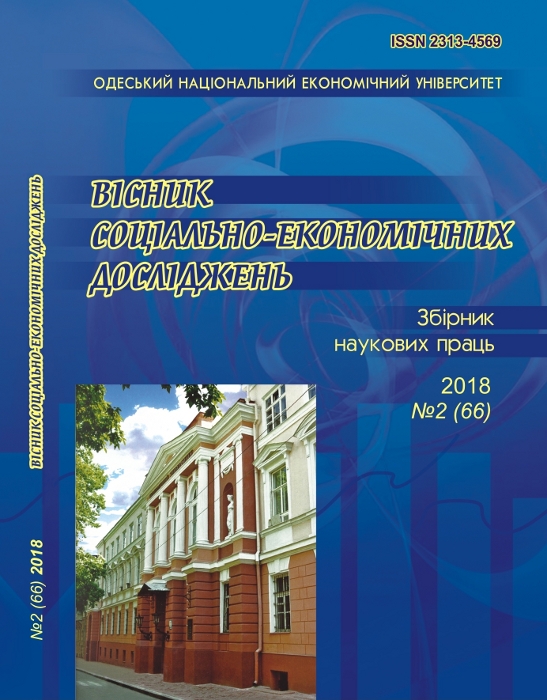Technical and economic aspects of fuel saving in air-conditioning and house heat supply
DOI:
https://doi.org/10.33987/vsed.2(66).2018.129-137Keywords:
energy savings, heat supply, air-conditioning, solar energy, thermal capacity, solar collector, fuel consumption, installation cost, thermal pump, soil accumulatorAbstract
Technical and economic comparison of typical facility for heat supply and indoor air-conditioning, which is operated on natural gas, with the facility working with the use of solar energy is conducted. It is shown that due to the integrated accounting of technical, economic, ecological and other aspects it is possible to solve an economic, scientific and technical problem of reduction of consumption of traditional fuel and energy resources. Application of technical and economic methods and information and communication technologies leads to strengthening of the requirements for economic efficiency of complex of marketing technologies of the high-technology enterprises. Since cost of gas and electricity is increasing constantly, there is a problem of reduction of their consumption by air conditioners. For refusal of electricity use, it is proposed to design a system of air conditioning on solar power. A growing environmental problems leads to necessity of application of air conditioning systems on solar power that are based on a difference of daytime and night-time air temperatures. Therefore, it is increasingly important to apply the combined solar facilities, which are used for heating during the cold season, and for cooling of premises during the warm period. The use of solar energy for air conditioning is also beneficial because the schedule of solar energy inflow coincides with the schedule of use of cold and because the addition of solar cooling to heating allows to improve economy of solar heat supply considerably. Costs of the facilities installation and maintenance as well as costs of using natural gas and electricity are analyzed. It is identified that users will spend 2.27 times more on purchasing and installation of the new equipment than on typical installation. However, they will spend 70 per cent less electricity in the air-conditioning mode and 310 m3 less natural gas in the heating mode every month. It is proved that throughout five years the user will spend UAH 104111.3 less than using typical facility. In the further engineering of system for heat supply and air conditioning in buildings it is offered to solve environmental problems, which depend on quantity of used natural fuel in scales of settlement, cities, countries.
References
Nakorchevsky, A. I. (2009). System of heat supply in autonomy heating house [Sistema teplosnabgeniya teploavtonomnogo doma] , Promyshlennaya teplotekhnika, Т. 31, No. 1, s. 67‒73 [in Russian]
Trofymenko, A. V., Andreeva, M. V., Andreev, A. A. (2009). Application of solar energy for heating, hot water supply and air-conditioning of carriages [Primenenie solnechnoy energii dlya otopleniya goryachego vodosnabgeniya i conditsionirovaniya passazhirskikh vagonov], Zaliznychnyi transport Ukrainy. No. 1, s. 59‒61 [in Russian]
Nakashidze, L. V., Gabrinets, V. A., Trofymenko, A. V. (2015). Factors influencing thermal balance in use of alternative energy sources [Faktory vliyayuschie na teplovoy balans sooruzheniya pri ispolzovanii alternativnykh istochnikov energii] Vidnovliuvana enerhetyka, No. 5, s. 15‒21 [in Russian-Ukrainian]
Trofymenko, A. V., Kozub, A. Ju. Bioenergy complex» [Bioenerhokompleks] , Patent No. 96845, Ukraina, Biul. No. 23 [in Ukrainian]
Ruzhu, W., Tianshu, G. (2016). Advances in solar heating and cooling. 1st ed. Woodhead Publishing, 596 p.
Gabrinets, V. A., Markov, V. L., Zaryvnyak, G. Sh. (2011). Research of features of power active fences construction as elements of power supply systems [Doslidzhennia osoblyvostei pobudovy enerhoactyvnykh ohorodzhen yak elementiv system enerhozabespechennia] , Problemy vysokotemperaturnoi tekhniky, Dnipropetrovsk, DNU, s. 7‒14 [in Ukrainian]
Bredford, T. (2006). Solar revolution. The economic transformation of the global energy industry. Press Cambridge, London. 224 p.
Joanico, L. (2009). A new design of roof-integration water solar collector for domestic heating and cooling, Solar energy, Vol. 82, pp. 481‒492.
Sarbu, I., Sebarchievici, C. (2017). Solar heating and cooling systems. 1st ed. Academic Press, 432 p.
Martinez, L. A., Trofymenko, A. V. (2016). Way of charging and extraction of thermal energy from a ground [Sposib zariadky i vydobuvannia heotermalnoho tepla z hruntu] , Patent No. 112923, Ukraina, Biul. No. 21 [in Ukrainian]
Trofymenko, A. V., Trofymenko, O. A. (2011). Construction of osmotic energy transformation in electricity [Ustanovka peretvoriuvannia enerhii osmosu v elektroenerhiiu] , Patent No. 94182, Ukraina, Biul. No. 7 [in Ukrainian]
Dmitrenko, A. A., Trofymenko, A. V. (2011). Full and evident cold production of air conditioning systems and realization of a binary cycle [Polnaya i yavnaya khladoproizvoditelnost sistem konditsionirovaniya i realizatsiya binarnogo tsikla], Vidnovliuvana enerhetyka, No. 4, s. 59‒61 [in Russian-Ukrainian]
Kalogiron, S. (2009). Solar energy engineering: processes and systems. 1st ed. Academic Press. California. 759 p.
Trofymenko, A. V., Dubov, M. Ju., Lapko, D. P. (2011). Operation results of solar collectors in system of heat supply for house [Rezultaty ekspluatatsii solnechnykh kollektorov v sisteme teplosnabzheniya doma], Promyshlennaya teplotekhnika, Т. 33, No. 5, s. 60‒66 [in Russian]
Zysin, V. A. (1947). Heating facilities with the thermal pump [Otopitelnye ustanovki s teplovym nasosom] ,Works CКТI, Moskva, Book 4, Vyp. 1, s. 31‒39 [in Russian]
Sorensen, B. (2015). Solar energy storage. 1st ed. Academic Press, 394 p.
Trofymenko, A. V., Dmitrenko, A. A. (2011). Heat pump [Teplovoi nasos] , Patent No. 58921, Ukraina, Biuleten No. 7 [in Ukrainian]
Nakashidze, L. V. (2014). Improvement of operational characteristics of constructions in the use of alternative energy sources [Uluchshenie ekspluatatsionykh kharakteristik sooruzheniy pri ispolzovanii alternativnykh istochnikov] , Alternativnaya energetika i ekologiya, No. 23, s. 84‒89 [in Russian]
Downloads
Published
Issue
Section
License
Copyright (c) 2018 Socio-Economic Research Bulletin

This work is licensed under a Creative Commons Attribution 4.0 International License.






